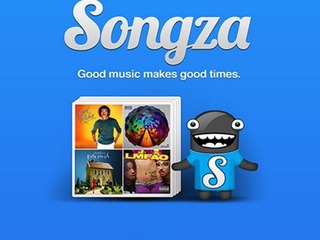
When you think of radio, what comes to mind? Probablyjust shock jocks, loudmouth political pundits, terrible top 40 Justin Beiber songs and the same classic rock songs played over and over again. Not very appealing at all. And yet Internet radio seems to be thriving, because it has become a place where we can listen to what we want to listen to, even if regular stations will never play it. It is also a place to find new and interesting music without having to wade through all the garbage.
One such service, free streaming music service Songza, has now raised $3.8 million in financing, according to a filing with the Securities and Exchange Commission.
Though no investors were listed in the filing, it does say that the company has 27 investors participating in this latest round. The company previously raised an undisclosed amount of financing raised in September 2011, from Deep Fork Capital, an unnamed strategic investor and Geoff Judge, co-founder of 24/7 Real Media, who also joined Songza’s board of directors.
There is, of course, also no indication about what Songza will do with the latest money it has raised.
Songza, which officially launched in September 2011, is a cloud-based digital music service that allows users to create and share music playlists in the cloud that. It offers a Music Conceirge that will give users suggested playlists that are based on day and time, along with filters for mood. For example, since I am writing this on a Sunday night, it has options for “unwinding,” “studying (no lyrics),” “bedtime,” and “love and romance.” If I switch it to Wednesday afternoon the options become, “boosting your energy,” “working to a background beat,” “getting fired up,” and “keeping calm and mellow.”

These are not the only playlists the service offers. It also has categories that include genre, decades, culture, and record-store clerk (playlists for record-store clerk include Indie Music That’s Not Too Weird, Obscure Genres, and When You’re Over Being a Music Snob).
Songza has apps that can be downloaded for the web, iOs, Android, and Kindle Fire.
The music streaming space
The music streaming space is dominated by two heavy hitters: Spotify and Pandora, both of which have been doing well recently.
In November it was reported that Spotify recently raised a $100 million round, giving it a valuation of $3 billion. Earlier this month, Pandora announced that it has hit 200 million users, doubling its userbase in two years.
So while these are obviously two giant companies that Songza is going head to head with, the success of Spotift and Pandora prove two things: one, that there is money out there for digital music companies, and, two, that the userbase for music streaming is still growing. These should be encouraging signs for Songza.
The Long Island City, New York-based Songza is owned by the same team who created Amie Street, which allowed musicians to upload their music to Amie Street’s platform and allowed users to listen for free, while songs rose in price as they drew more listeners. Amie Street was acquired by Amazon in September 2010 for an undisclosed amount.
Songza could not be reached for further comment.
(Image source: http://mashable.com)


















